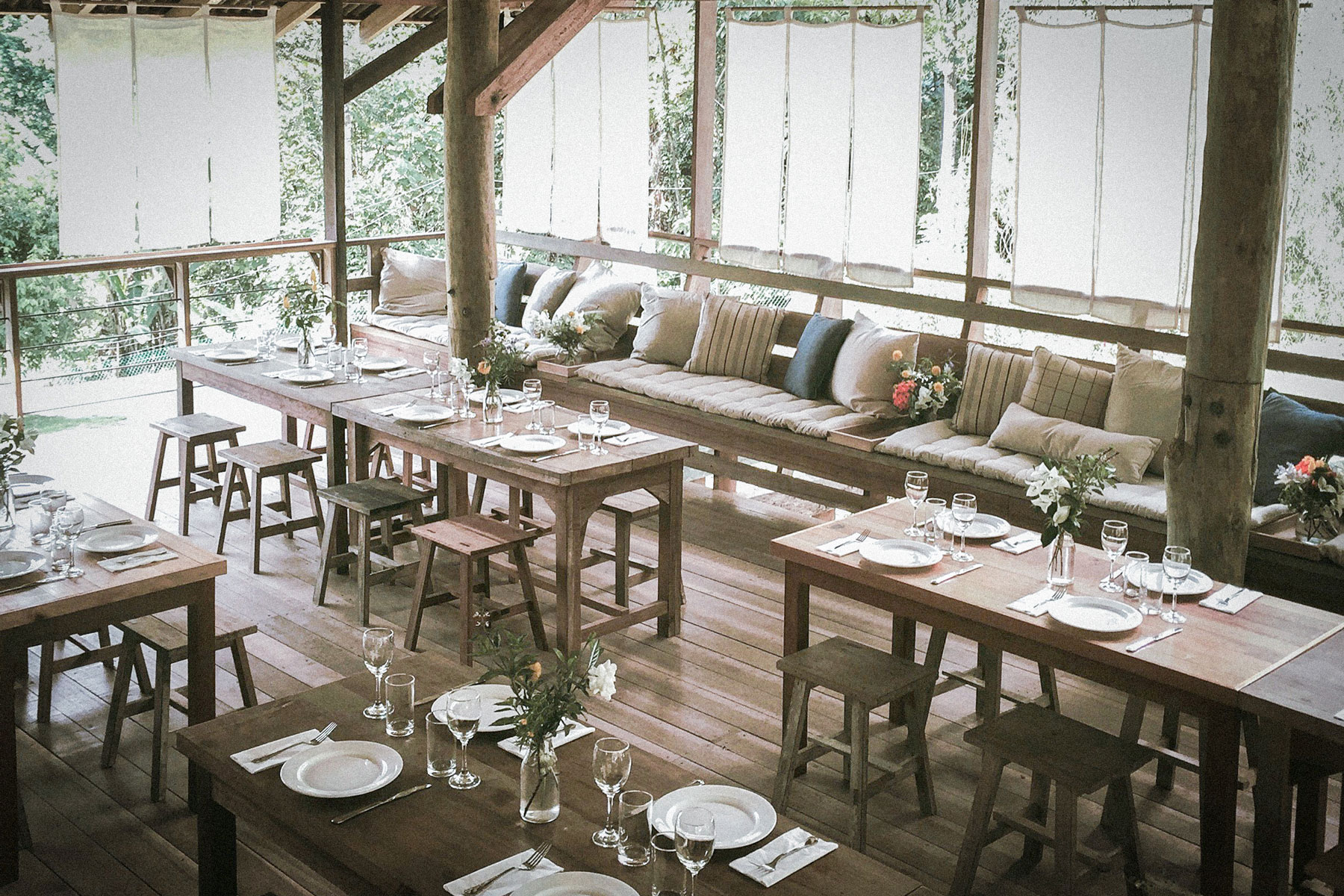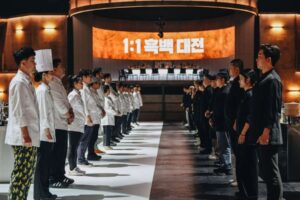An hour away from Kuala Lumpur, within the serene highlands of Janda Baik in Pahang, sits A Little Farm On The Hill, its humble yet thriving 6-acre land boasting a certified organic farm and a farm-to-table restaurant. Over 30 varieties of herbs, fruit and vegetables are grown here, supplying ingredients to some of the city’s top fine dining restaurants. Visitors and guests are invited to partake in thoughtfully crafted meals made from freshly harvested produce, and occasionally you’ll find gardening and cooking classes, yoga sessions, and even small concerts hosted here.
Behind this flourishing multifaceted operation is husband-and-wife team Pete Teo and Lisa Ngan, who left the city behind seven years ago to start growing their own vegetables in the Janda Baik forest. We catch up with Pete to learn more about the journey that has brought A Little Farm On The Hill to where it is today, and the plans they have for the future.
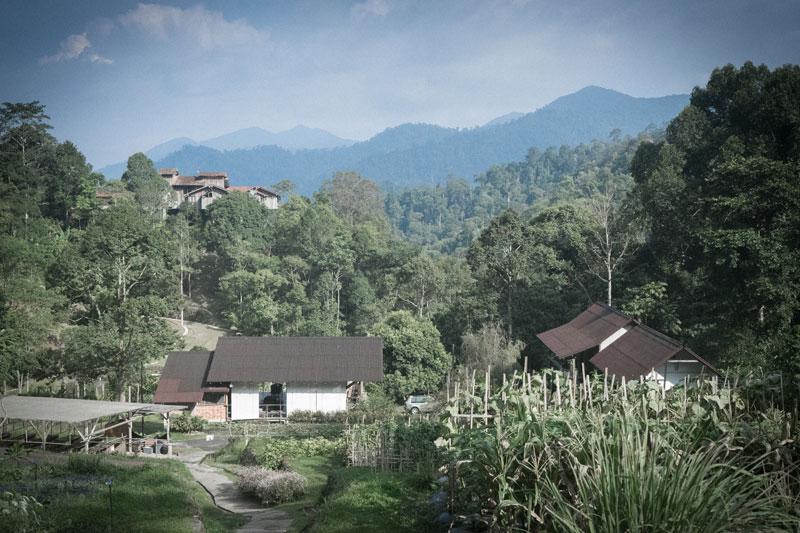
Could you share a bit about how A Little Farm On The Hill came about?
Lisa had been an architect, and I a musician and filmmaker, for more than 25 years. We’d both been urbanites since childhood, but it got to a point where we wanted to live differently, so when the opportunity came up to develop the farm seven years ago, we took it. The decision was made easier by our location in the highlands of Janda Baik. The weather is cool and we are just under an hour’s drive from Kuala Lumpur. The proximity meant we could maintain our urban connections yet live in the countryside. It would have been much harder to manage the transition if we had been further away from the city.
What was it about building an organic farm that drew you both to it?
We were attracted by the fact that organic farming connected two crucial global issues of our times: food security and environmental sustainability. We felt it was important that we lend effort to the betterment of these problems, however modestly.
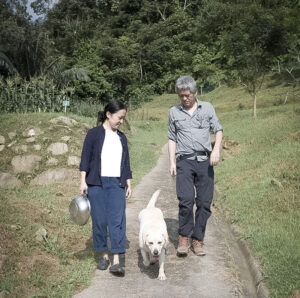
We knew absolutely nothing about organic farming when we started, but the more we learned the more obsessed we got. It took two years for the farming operation to stabilise, whereupon we added a restaurant to it. Again, we had zero experience in the F&B trade so we had to learn from scratch. But Lisa has always been a talented cook and it didn’t take long for things to click. The fact that we came from outside the world of conventional agriculture and F&B meant we were better able to devise out-of-the-box solutions to problems. Adopting non-conventional methods allowed us to build a unique identity for the farm that’s been crucial to its success.
It’s been quite a journey. We’ve made friends along the way and learned about the natural world as well as the enormous damage that modern society inflicts on it. The farm remains a work-in-progress and we will devote the rest of our lives to making it better.
In terms of produce, are there any particular products that restaurants, stores or customers love and keep coming back for?
We grow over 30 types of crops in moderate quantities. That’s an awful lot of crops for a small farm. We do that to promote eco-diversity on the property, but also because we specialise in supplying fine dining restaurants, where chefs need a range of produce rather than quantity. We also grow everything organically in soil and compost, as opposed to sanitised mediums such as coco peat or water, which means our vegetables are extremely nutrient-rich and tasty. Chefs come to us for that as opposed to any particular speciality product.
The first thing someone sees when they visit your website is a little blurb that’s almost an ode to soil. Could you elaborate about the importance of soil to the business?
Billions of microbes live in just a mere handful of healthy soil. Without these organisms, life would not be possible on Earth, let alone on a farm. They are crucial to how plants feed and are the reasons why modern organic agriculture is centred on soil microbiology as opposed to chemistry as a starting point. Healthy soil is also one of the most important sequesters of carbon in the natural world, and it lies at the centre of the planetary sustainability issue.
We are obsessed with keeping our soil healthy. From crop rotation, feed strategy and waste management, everything we do is targeted towards improving soil. In fact, we don’t actually look at ourselves as growing vegetables but rather as growing soil. We see it as the most important investment we can make. There would be no cause for the farm to exist without healthy soil. It is literally the core of everything we do, both practically and philosophically.
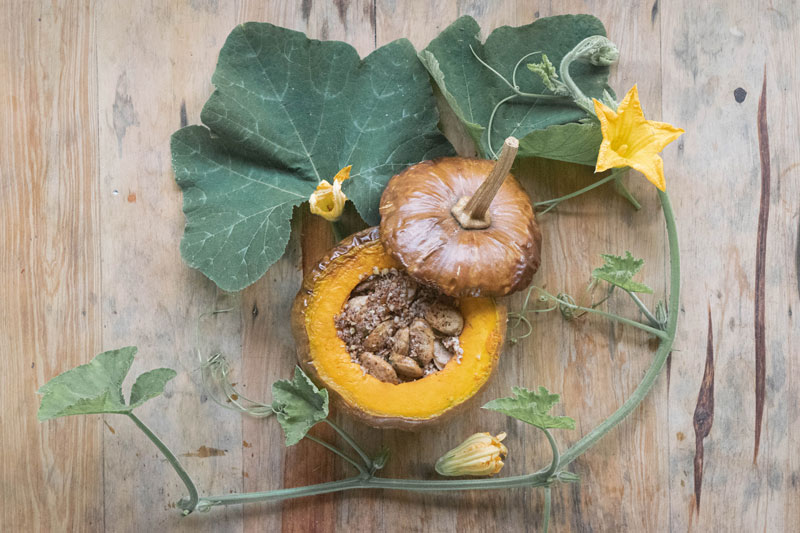
Was it part of the original plan to start hosting workshops and meals here?
The restaurant and workshops have been part of our plan from the beginning. We wanted to build links to Kuala Lumpur in real and tangible ways, not just as a supplier of fresh vegetables, but also as an idyllic place to visit and spend time. Over the years, this idea has guided us on everything from furniture design to human resource policy. The ethos that we are a symbiotic part of a broader communal eco-system is pretty much hardwired into the culture of the farm. The restaurant and workshops are central to this.
How would you describe the cuisine that diners will encounter here?
Although we are more a high end farm-to-table restaurant than a ‘fine dining’ one, our chefs do come from fine dining backgrounds and we are heavily influenced by that world. This means we do a lot of R&D and our cuisine is constantly evolving. But two dishes have remained constant on our menus because they are enormously popular: our 6-hour smoked beef and the 12 leaf salad. The former has been a house specialty from the start and the latter is a deceptively complex garden salad harvested hours before service, and is known to make converts of people who otherwise don’t like vegetables! Although some customers describe what we do as ‘rustic chic’, the most common adjectives used to describe our cuisine is ‘clean tasting and delicious’.
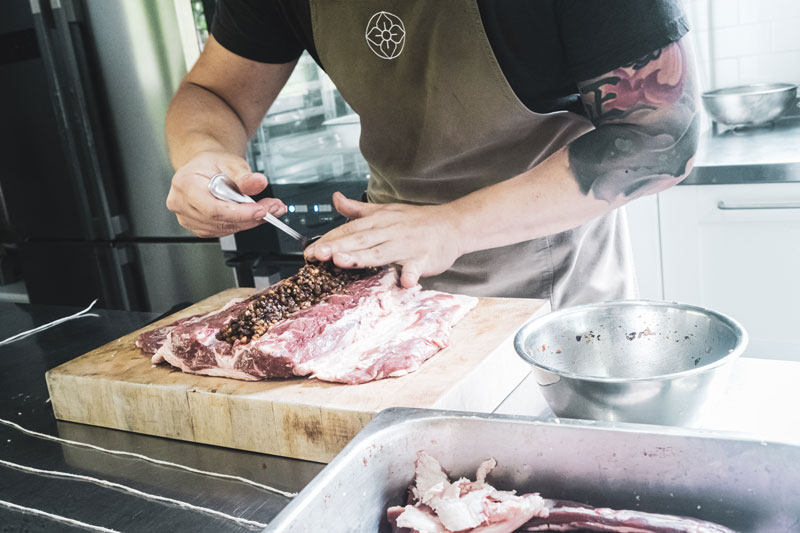
What are the achievements so far in this journey that you’re most proud of?
As any visitor can attest, the farm is a beautiful place, staffed with a dedicated, professional team, serving customers who find enjoyment in what we do. I guess we are most proud of the relaxed yet efficient culture that we have built into our community here. We hope to make it even better as we move forward.
What is the ultimate mission and philosophy of A Little Farm On The Hill?
We don’t harbour expansive ambitions but do want to be absolutely brilliant at what we do. In the longer term, we hope our stewardship of this land will yield something lasting and beneficial to the broader community, and for the farm to always be an idyllic and nurturing place to work and visit.
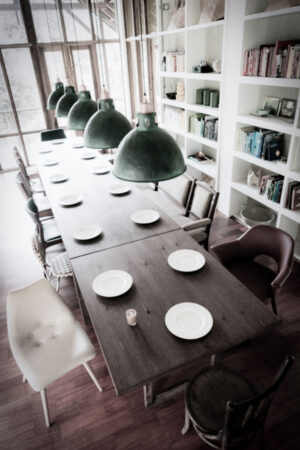
Any goals and plans for the future you can share with us?
We are building a small recording studio at the farm as we speak. The studio complex will include an artist apartment and will in fact be the centre piece to an artist residency programme that we hope to establish in a couple of years. It has been a long held ambition to incorporate performing arts into the farm and we look forward to getting it off the ground!
To make a booking at A Little Farm On The Hill, or to learn more, visit alittlefarmonthehill.com
Location: Lot 161 Tanarimba, Persiaran Enderong, Kampung Janda Baik, 28750 Bentong, Pahang
Contact: +609 233 0194
(Photos: A Little Farm On The Hill)


